
NPEU-Oxford
@NPEU_Oxford
NPEU is a multi-disciplinary research unit which was established at the University of Oxford in 1978. @UniofOxford @Oxford_NDPH @mbrrace @NPEU_CTU @NPEU_UKMidSS
📢We are developing a new study looking at treatments that may help improve care for Hypoxic Ischaemic Encephalopathy (HIE).📢 If you have a child who received cooling therapy for HIE and are interested in taking part in an online focus group please get in touch. @NPEU_CTU
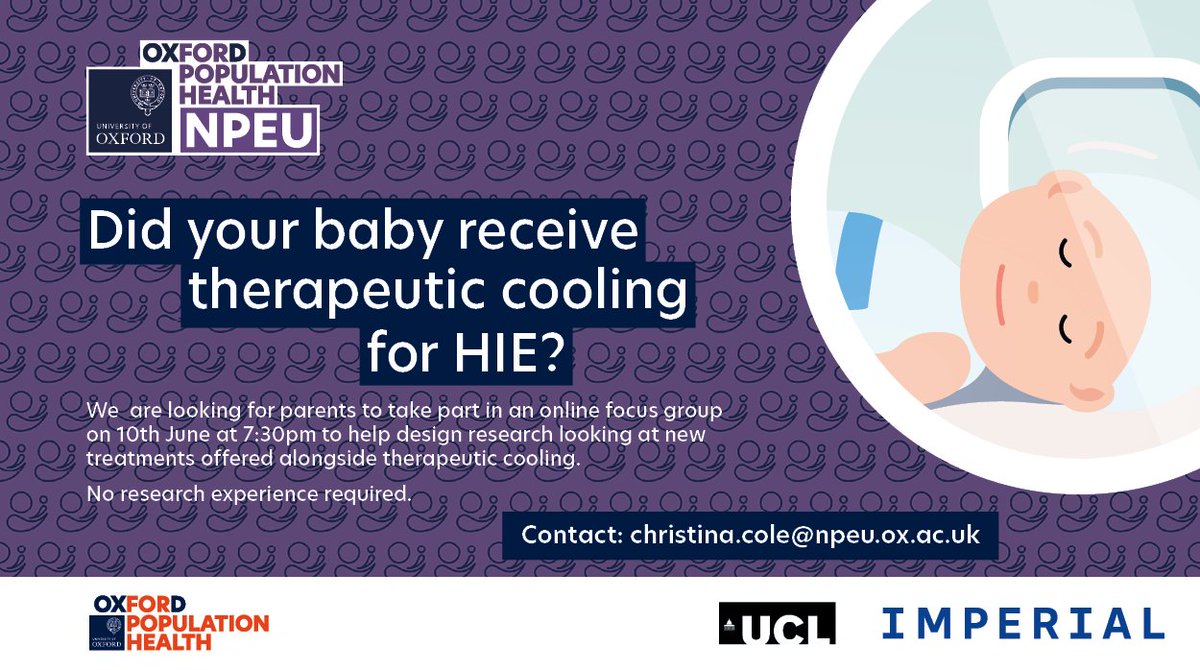
The BOBBi study is being set up at the NPEU CTU! A @NIHRresearch funded study looking at the use of steroids to treat bacterial meningitis in babies under 3 months old. Recruitment is due to start in Summer 2026. @NPEU_CTU @NPEU_Oxford
Research priorities for the #mostprembabies #bornbefore25weeks gestation identified by #INPRES. See the results and read the full publication here: 👀 bit.ly/40oRIqF @MostPremBabies @MCRI_for_kids @Lindalliance @Katherine_JLA
Research priorities for the most premature babies born less 25 weeks gestation identified by an international priority setting partnership. The results have now been published, you can read about the full publication and article here: 👀 bit.ly/40oRIqF
Publication of guidance on managing changes to participants’ involvement in clinical trials. A series of principles which can be used as guidance for anyone involved in managing participant changes in consent. Published article here: bit.ly/4kH96Ow
Started the perinatal mental health survey but didn’t get a chance to finish? You can go back and complete it - every answer counts and helps make research better. Thank you for being part of this! 🔗 Take the survey: bit.ly/PMHPriorities 📅 Closing date: Monday 21st July
We're having fantastic response! Are you from the UK? Are you someone with lived experience, a family member, clinician or policy maker? Help shape the future of perinatal mental health research. Click on the link here: prioritiseperinatal.co.uk
Help shape future research in perinatal mental health research by completing the survey below 👇
💭 What questions about perinatal mental health do you want answered by research? Help make sure future research focuses on what really matters to people with lived experience—not just to scientists or funders. 👉 Complete the survey: bit.ly/PMHPriorities @HeatherWillis18
We conduct research through the perinatal period, from fertility through to pregnancy🤰and childbirth👶. If you have a new idea💡for a #Clinicaltrial we would love to hear from you. Find out more about working with the @NPEU_CTU on your research idea💡bit.ly/3TjXBRO
Launching today!! Please take a look 👀
Launching today! What questions about Perinatal Mental Health would YOU like to have answered by research? The James Lind Alliance process prioritises research and influences funding. Click here: prioritiseperinatal.co.uk @NHSuk @MarceSociety2 @MoH_DRMH @MMHAlliance
A new study by researchers at @Oxford_NDPH National Perinatal Epidemiology Unit has found that children born to mothers with a body mass index (BMI) of 35 or above may have an increased risk of being admitted to hospital for an infection. Read more: bit.ly/4kFsqN6

These findings show that progress is being made in reducing baby deaths but there is still important work to do, especially to tackle the gaps linked to deprivation, ethnicity, and how early in pregnancy a baby is born. @TIMMSleicester @mbrrace
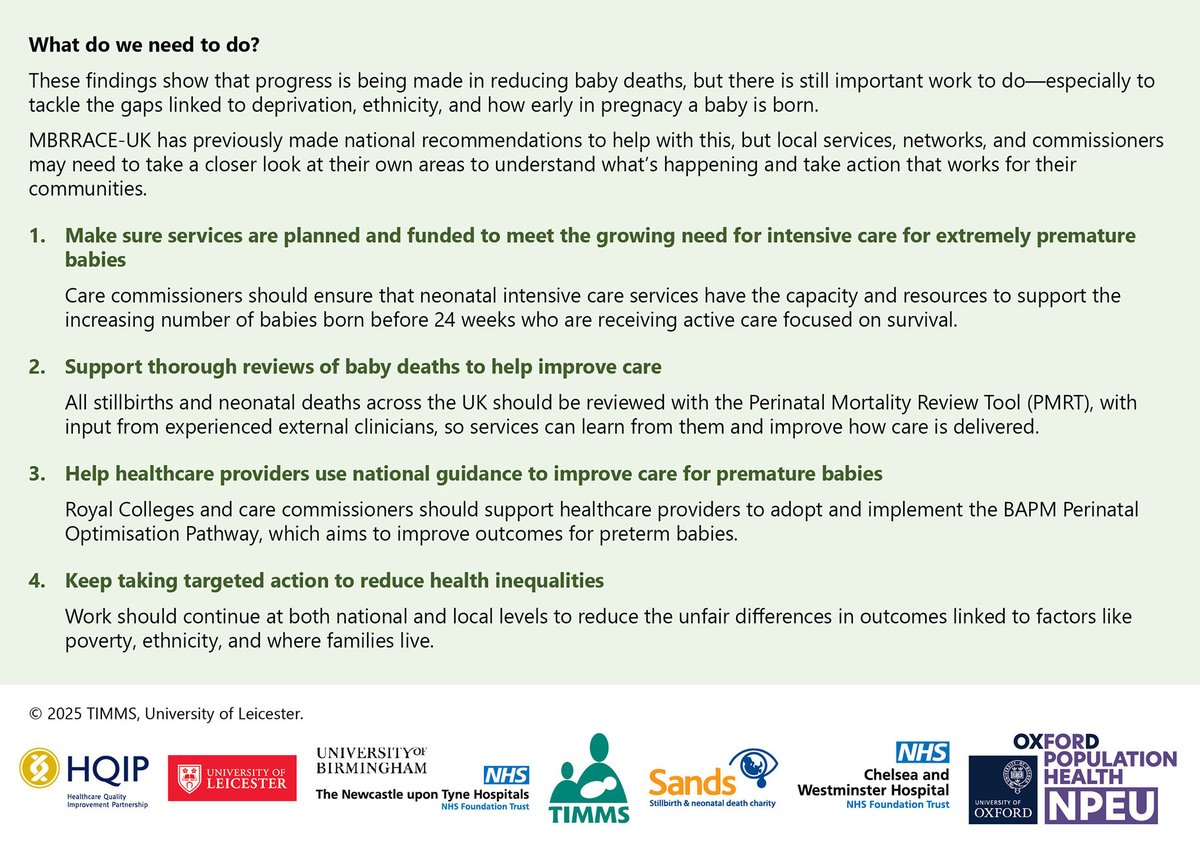
The common causes of stillbirth and neonatal death remained the same in 2023. The cause of stillbirth remains unknown in one-third of cases. @TIMMSleicester @mbrrace
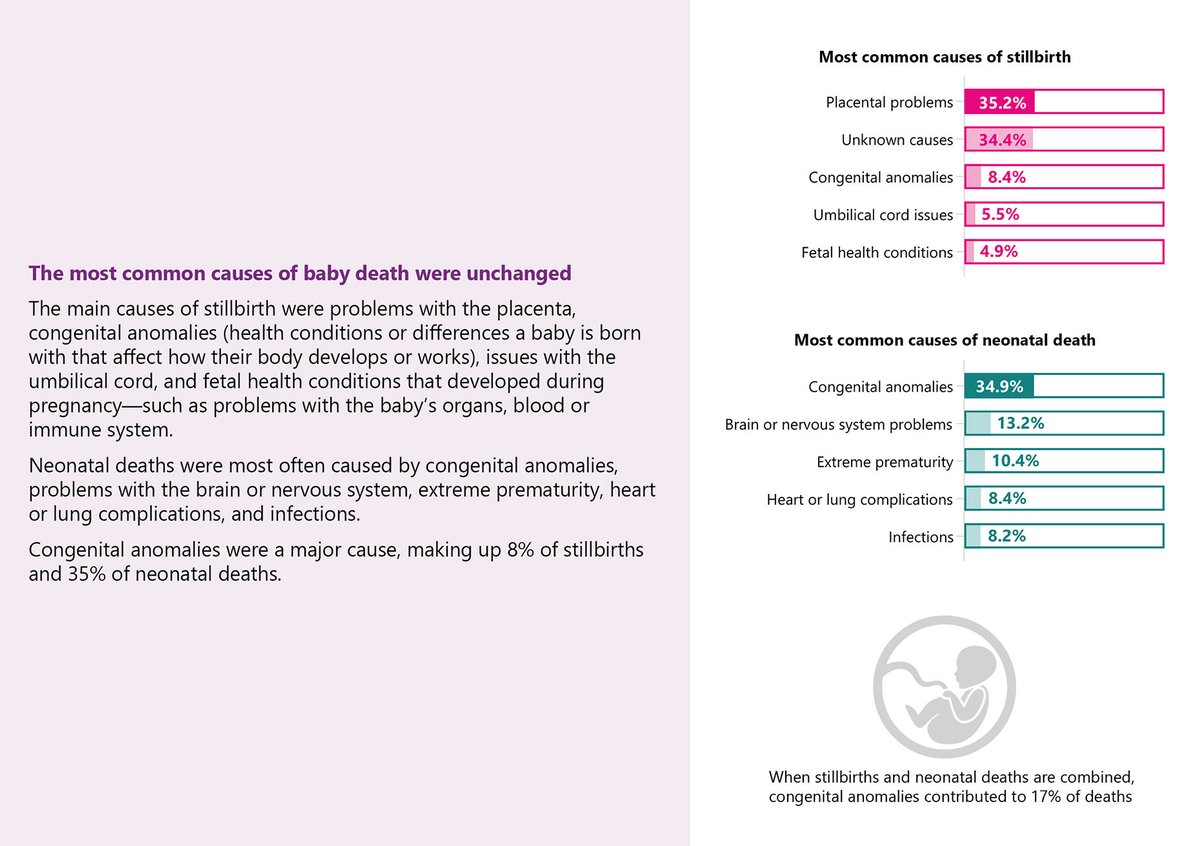
Persistent inequalities in baby deaths remained in 2023, with rates increasing for babies born in the most deprived areas for the third year running. Ethnic disparities also continued with Black and Asian babies more likely to die than White babies. @TIMMSleicester @mbrrace
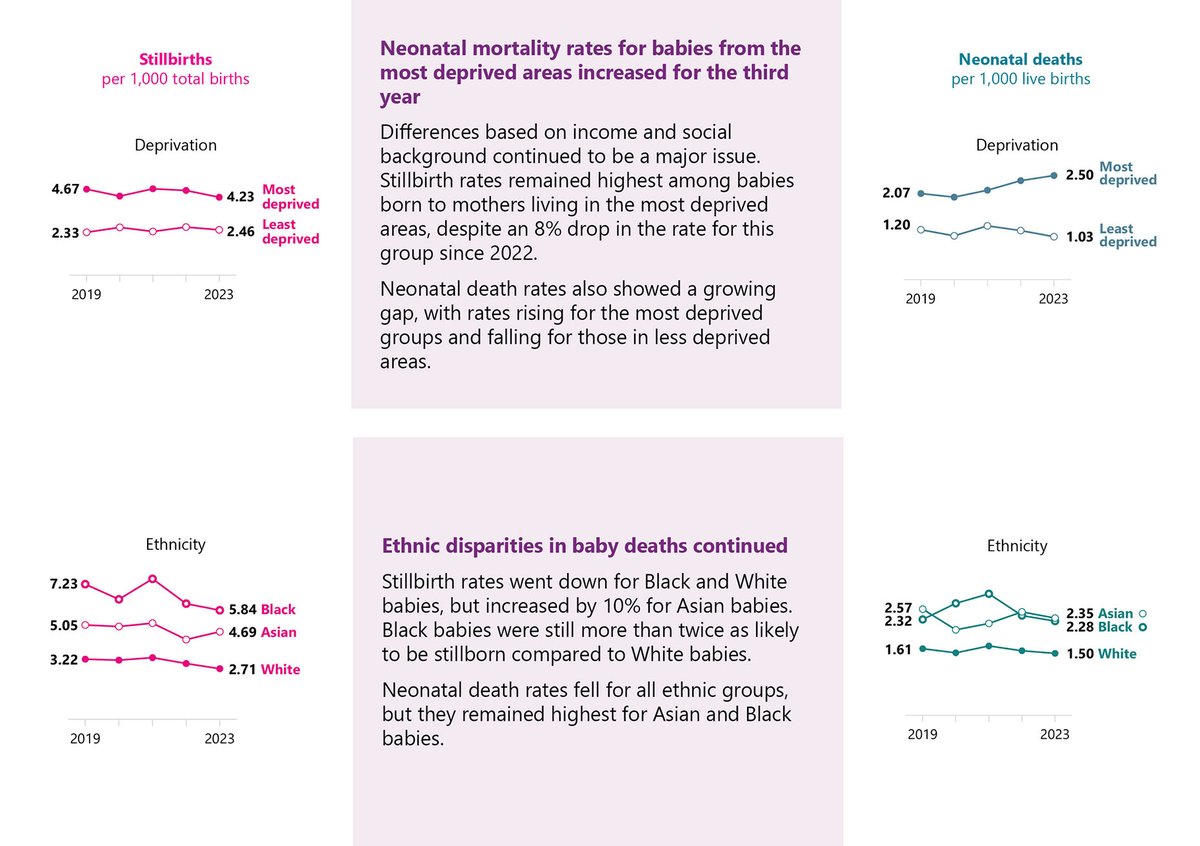
Stillbirth rates decreased but neonatal mortality rates increased for the very smallest babies. Babies born at 22 and 23 weeks made up 25% of all neonatal deaths in 2023. @TIMMSleicester @mbrrace
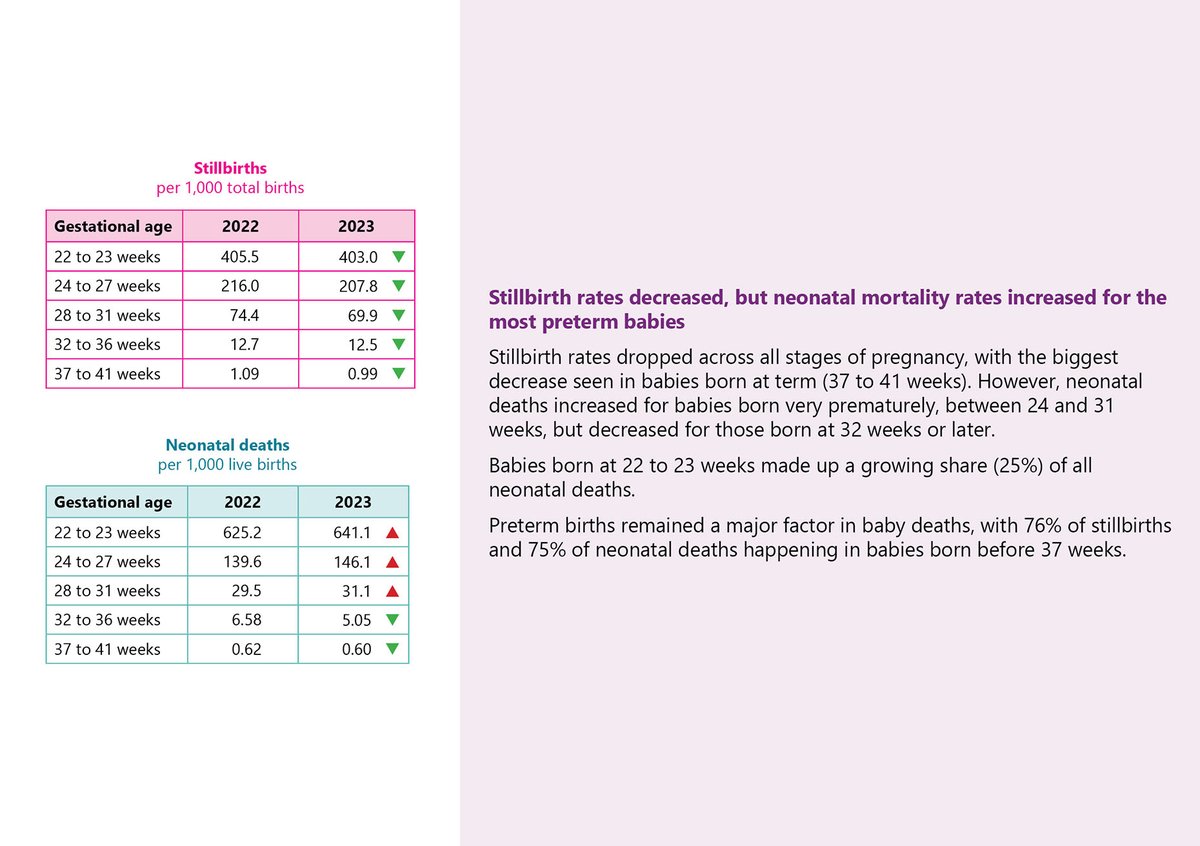
Stillbirth rates were similar across most trusts and health boards, but neonatal mortality rates varied more. You can view the rates for each trust and health board in our data viewer: timms.le.ac.uk/mbrrace-uk-per… @TIMMSleicester @mbrrace
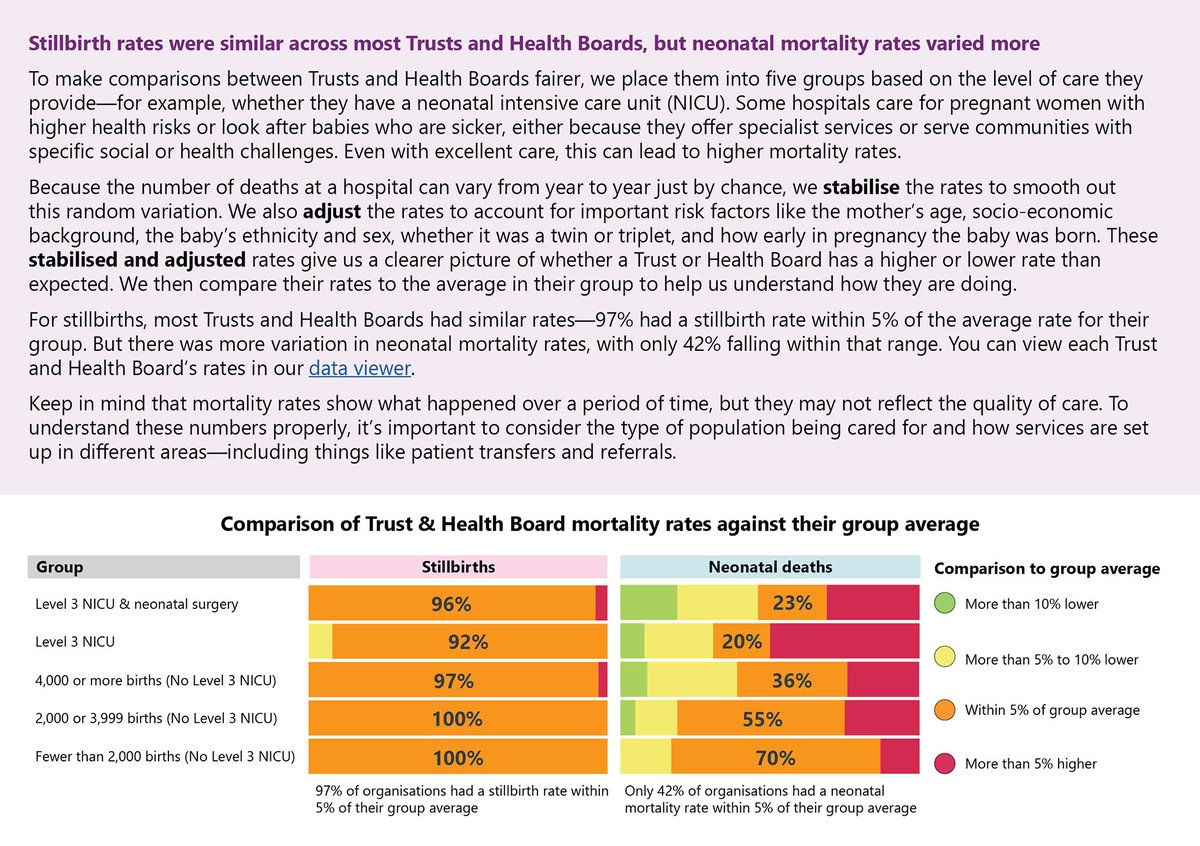
Rates of baby deaths continued to decrease in 2023, mostly due to a reduction in stillbirths. Compared with 2022, stillbirth rates were lower in every nation of the UK and fewer newborns died in England, Wales, and Northern Ireland. @TIMMSleicester @mbrrace
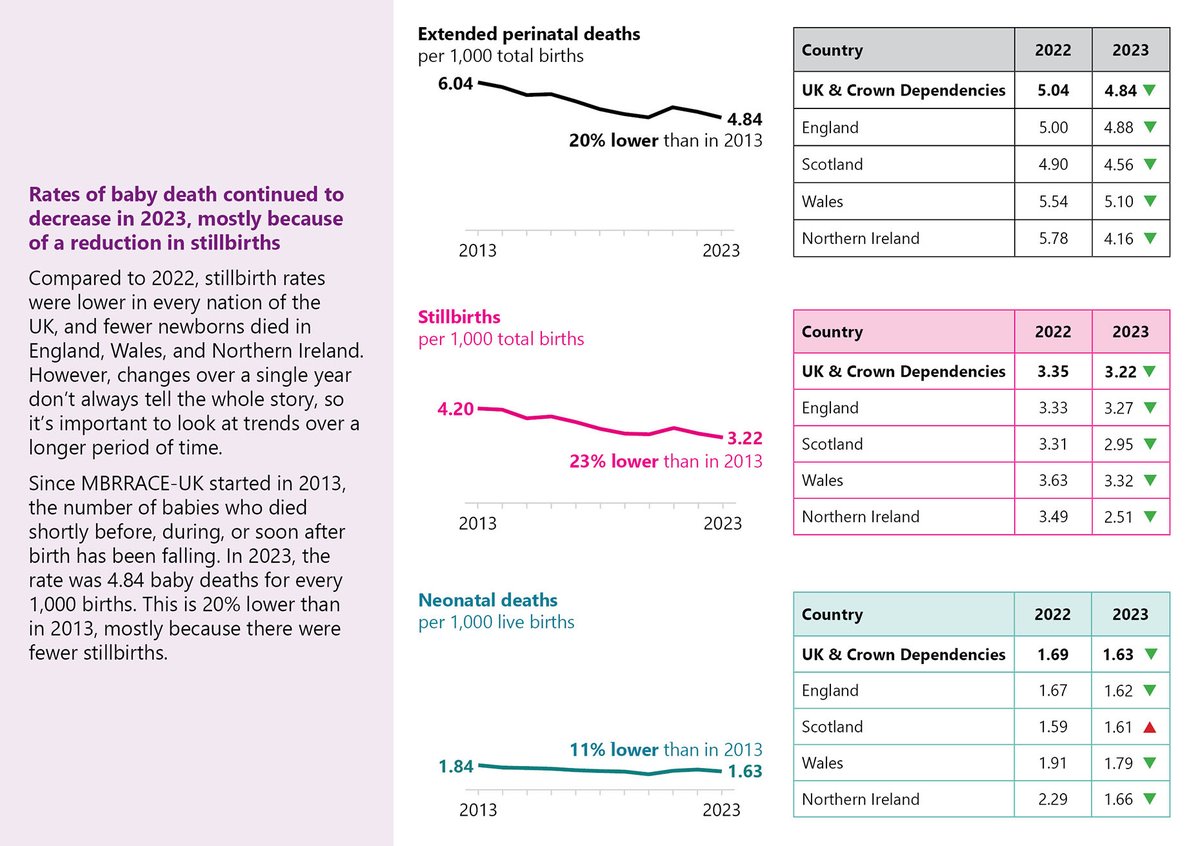
The @mbrrace perinatal mortality ‘State of the Nation’ report for deaths that occurred in 2023 has now been published. @TIMMSleicester @Oxford_NDPH
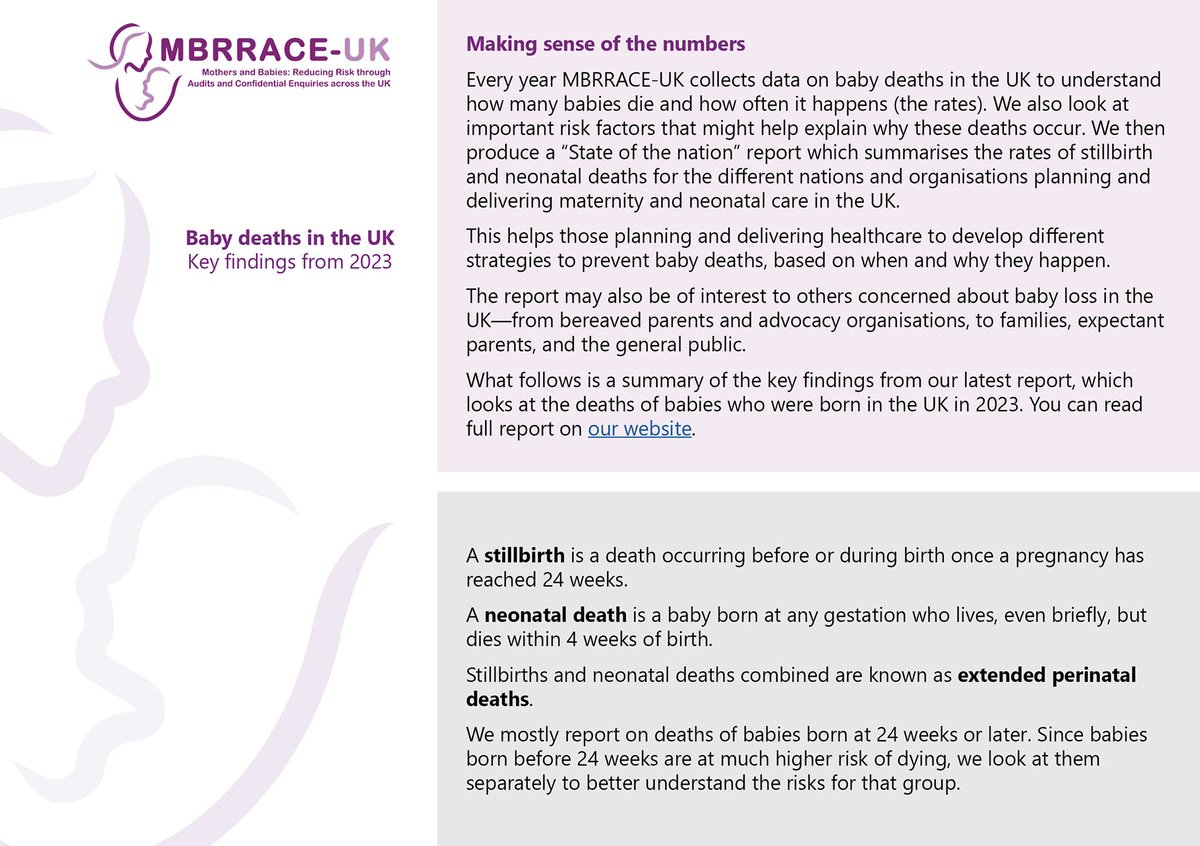
A new study by @NPEU_Oxford and collaborators has found that maternal anaemia in early pregnancy is associated with an increased risk of babies being born with congenital heart disease. Read more 👉 buff.ly/1Oh0I5M
This year #WorldHealthDay focuses on maternal and newborn health. @NPEU_Oxford's research on pregnancy, childbirth, and newborn babies is crucial to public and population health sciences, clinical care, and health policy development. Find out more 👉 buff.ly/shlxec1
Do you see women with inflammatory arthritis who are pregnant or planning a pregnancy? @TheMAMAStudy, commissioned by the @NIHRresearch, will be of interest to you. For more information visit npeu.ox.ac.uk/mama or email [email protected] @NPEU_CTU @NPEU_Oxford